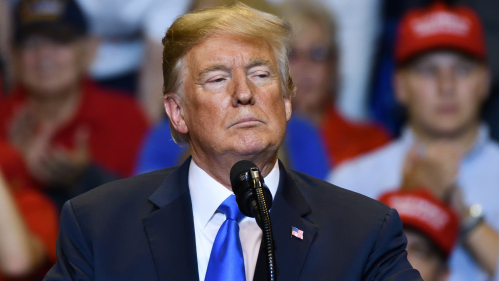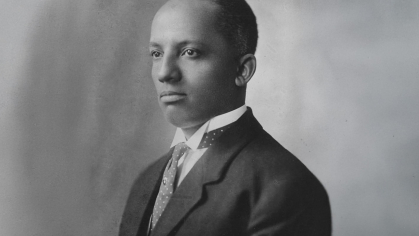Would a Trump 2024 Presidential Run Hurt or Help the GOP?

Donald Trump is expected to announce Tuesday night his third run for the White House after losing his reelection bid in 2020. The run would put him among a small group of presidential candidates to seek reelection after losing office.
The announcement also comes in the wake of disappointing midterm election results for the GOP and amid media reports that advisors are encouraging Trump to postpone entering the 2024 presidential race.
David Greenberg, a professor of history and journalism and media studies and an expert on American political and cultural history, including the presidency, looks back at the last time a former president tried to reclaim the White House and considers whether Trump stands a chance.
When is the last time a president who lost a reelection bid ran again?
It’s very rare that a president who loses his reelection bid tries again four years later. I think the last person to do so was Grover Cleveland, who lost a reelection bid in 1888 to Benjamin Harrison. But Cleveland that year was one of the few presidents who lost the Electoral College while winning the popular vote, and he tried again in 1892 – and won the rematch.
Then there’s Theodore Roosevelt. He doesn’t really fit the description, because he didn’t lose in 1908—he stepped aside and hand-picked his Republican successor, William Taft. But after a few years, Roosevelt thought Taft was such a bad president that he came out of retirement in 1912 to seek the White House again. Taft and Roosevelt split the Republican vote and Woodrow Wilson, the Democrat, was elected.
How did Cleveland win and what did he accomplish?
He was considered a rather important and accomplished president in his day – though less so today. One of the major bills he signed into law was the Interstate Commerce Act, which was a federal effort to regulate the railroads, a tremendous (and often exploitive) power in their day. He pushed for lower tariffs, also an important issue back then. And he tried to diminish the power of the “spoils system” and make sure that federal offices were filled according to merit, not just according to partisan political loyalties.
How do you think the results of the midterm elections reshape Trump’s support within the Republican party? Why do you think he made the decision to announce now even though there are reports his advisors suggested he delay?
The conventional wisdom is that Trump’s prominence in the news this fall hurt the Republicans, as did his influence in selecting or favoring certain GOP nominees who turned out to be weak candidates or who were seen as dangerous because of their extreme views and support of conspiracy theories. There seem to be a lot of Republicans right now who would prefer Ron DeSantis of Florida.
But I think we underestimate Trump at our peril. He retains a strong grassroots following, and most Republican leaders are still afraid to cross him, despite his candidates’ performance on Tuesday. Right now, Trump should probably be seen as the front-runner for the Republican nomination in 2024. He’s a man of strong will who usually ignores advice that he do anything that might betray some humility or concern for his party or the country or anyone besides himself. And in following his own lights, he has often been proven correct – so as a result, he usually trusts his own judgment over those that he hears in the news media or from his advisers.
Do you think making an announcement against advice could embolden other potential Republican candidates like Ron DeSantis, who seems like his leading contender?
If Trump does announce his candidacy then, yes, it will increase the pressure on others to do so – or at least to quietly begin the process of raising funds, hiring campaign staff, lining up endorsements and so on.
What are the odds he will get the Republication nomination given the midterm outcomes and what do you think will happen if he doesn’t?
You know, there are no “odds” in politics. We cannot predict the future. Things usually turn out differently from how we predict. As I say, Trump should be regarded as the front-runner right now, but that can change.
If someone serves two nonconsecutive terms, could they run for a third term?
No. The 22nd Amendment says, “No person shall be elected to the office of the President more than twice.” So I guess he could “run” but he couldn’t win. It’s rigged!


